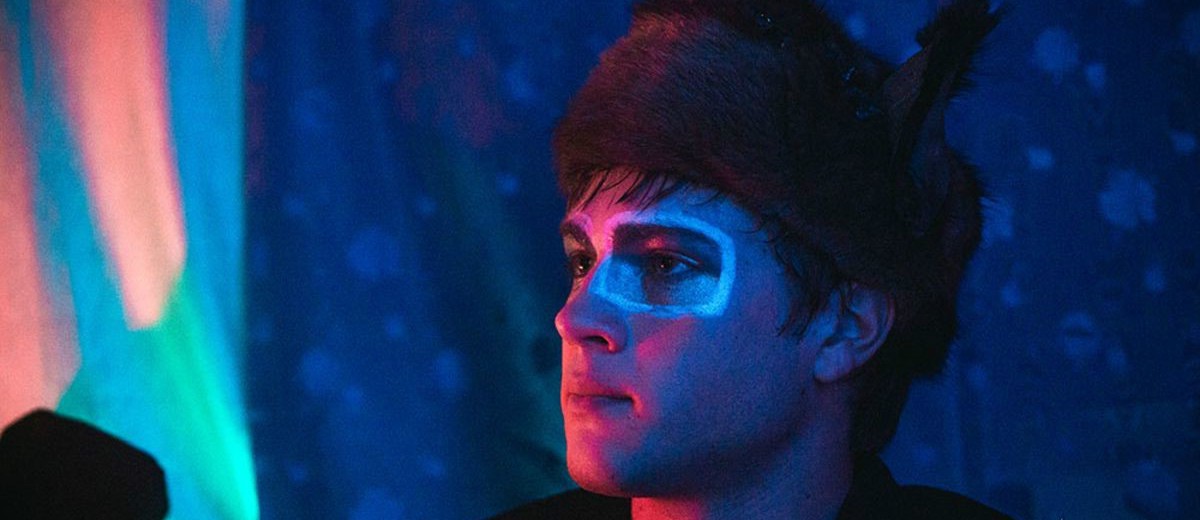If you’ve ever wanted to hear Isabella Rossellini voice a hamster named Buffy, go see Closet Monster, the debut feature from Canadian director Stephen Dunn. The film’s also worth checking out if you’re curious to see a coming-of-age Canadian queer film not made by enfant terrible/national treasure Xavier Dolan. But mostly, you should see Closet Monster because it’s simply a good Canadian film. And you don’t just have to take my word for it: the movie won the Best Canadian Feature Film at TIFF last year.
Connor Jessup plays Oscar, an odd young man who’s quietly terrified of his homosexual urges and happens to own a talking hamster. Oscar finds himself forced to face these urges after a meet cute with a new coworker, the curly-haired pretty boy, Wilder (Aliocha Schneider). Several exchanges at the hardware store where they both work reveals their reciprocal desires, though Oscar feels threatened by Wilder’s sexual confidence.
We slowly piece together the roots of Oscar’s sexual repression during a repeated flashback from his young childhood, when he witnessed a heinous sexual assault of a homosexual teen. His sexual identity has also been complicated by his upbringing. His divorced father Peter (Aaron Abrams) couples questionable parenting skills with a casual disdain for homosexuals. Oscar’s mother, Brin (Joanne Kelly) — notably absent through most of the film — suddenly appears at the end to help wrap up a hastily plotted conclusion to the film.
Oscar also has a best friend named Gemma (Sofia Banzhaf), but her companionship is mostly important in establishing his burgeoning talent as a stage makeup artist; she’s a willful guinea pig (no offense to Buffy) for Oscar’s elaborate hair and makeup experimentation. Speaking of Buffy, the talking hamster is crucial to Oscar’s development despite being essentially, an imaginary voice in his head. Her wry sense of humour coupled with Rossellini’s pleasant, nurturing voice is testament to the idea that a highly creative child in a lonely household may dream up his own idea of motherly support.
In the last few decades many movies about the complex, difficult process of coming out have found their ways to multiplexes. What makes Closet Monster transcend the typical contrivances of that narrative is its mix of dark whimsy, its beautifully crafted, slow-motion shots, and its ability to nod at, rather than ape, its references (most notably, Buffy the Vampire Slayer and David Cronenberg).
Despite the lopsided nature of the film’s storytelling, one can’t help but marvel at the lush, colourful and meditative mood in Closet Monster. Dunn’s debut is a truly unique coming out story, not to mention a highly original Canadian film.

